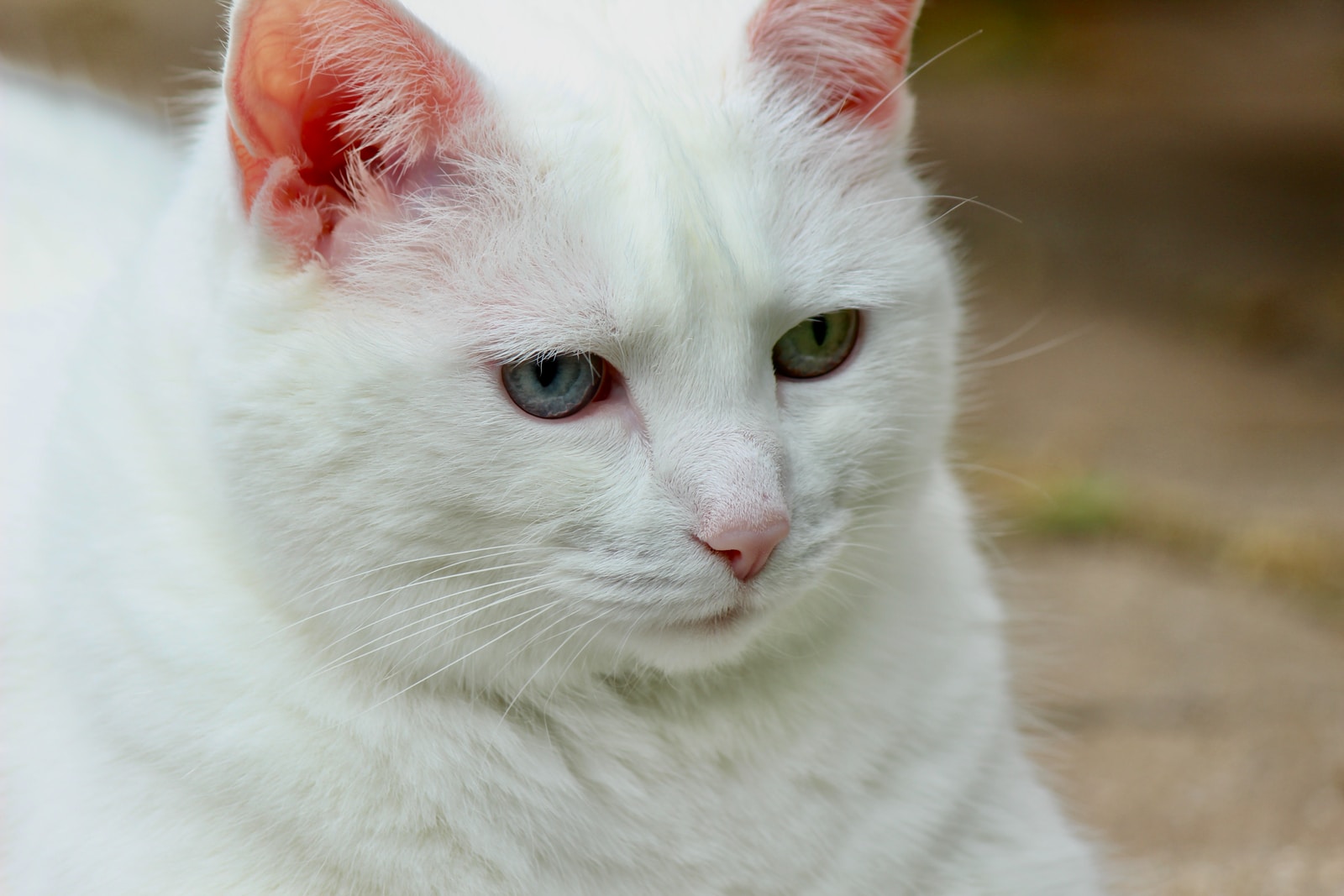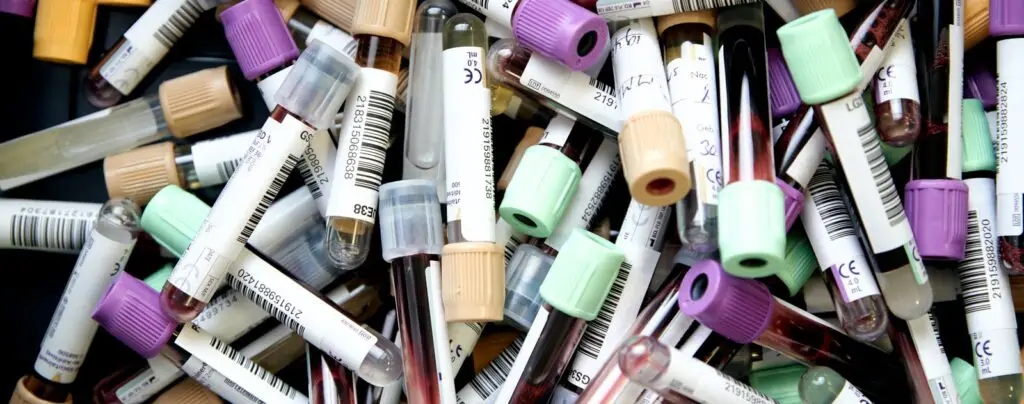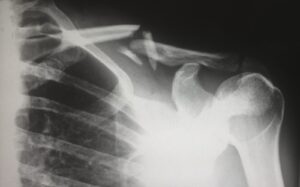
Key points
- Hematemesis is a condition when an animal vomits with blood. It can be extremely dangerous, therefore, you should seek veterinary attention immediately.
- A cat may experience bloody vomiting due to dental diseases, injuries, parasites, poisoning, or genetic predisposition to certain health issues.
- Hematemesis treatment will typically address the underlying issue of the pet’s condition and provide additional supportive care. The treatment is based directly on the cause of bloody vomiting.
Vomiting hairballs is completely natural for cats. Having blood in the vomit, on the other hand, is not. It can indicate a number of dangerous health conditions, so if you see blood in your cat’s vomit, you need to book an appointment with your veterinarian immediately. In the meantime, you can read this article to find out key things you should know about bloody vomiting in cats.
Table of Contents
What Is Hematemesis?

Hematemesis is the medical term for bloody vomiting. The blood usually comes either from the cat’s stomach and esophagus or its small intestine. If the blood comes from the stomach, it will look like bright red streaks in the vomit. If bleeding occurs in the intestine, the blood is partially digested, so it looks like coffee grounds. Sometimes, if the bleeding occurs in the mouth or respiratory tract, the cat will swallow the blood and then vomit it back out. Internal bleeding can be caused by many things, and it can indicate different health conditions.
Causes Of Bloody Vomit In Cats
The most common causes for hematemesis in cats include:
- Prolonged or severe vomiting that is left untreated. Vomiting causes the organs of the digestive system to become inflamed, and this can result in bleeding.
- Dental diseases
- Side effects of medications
- Traumatic injuries
- Intestinal parasites such as roundworms
- Kidney failure or liver disease
- Cancer
These are the most common causes of bloody vomit in cats, but here’s a list of more rare conditions that you should be aware of:
Rat Poison Ingestion
Rat poison is extremely dangerous and should be kept away not only from children but also from pets. The cat’s body reacts to the poison the same way rats’ bodies do, and therefore, you should be very careful with the substance. If your pet ingests rat poison, it may experience difficulty breathing, lethargy, and excessive thirst, in addition to hematemesis. If you can, collect a small amount of your cat’s vomit for your vet to examine. The specialist can also run blood and urine tests to determine the cause of vomiting.

Gastrointestinal Ulcers
Just like people, cats can suffer from sores on the lining of the stomach. However, stomach ulcers are uncommon in cats. While their exact causes are unknown, ulcers are typically associated with tumors. The symptoms of ulcers in cats include loss of appetite, lethargy, pale gums, dark stool, or bloody diarrhea.
Heartworm Disease
Unfortunately, while these parasites can affect cats too, this condition can only be treated in dogs. Luckily, felines are less likely to have heartworm disease than canines. Cats develop a condition called heartworm-associated respiratory disease (HARD). Its symptoms include lack of appetite, vomiting, coughing, and asthma-like attacks. Your vet can run a simple blood test to determine if your cat has heartworm disease.
Clotting Disorder
Hemophilia is a rare genetic disorder that results in blood not clotting properly. If the bleeding is severe, your cat may need hospitalization and blood transfusions.

Panleukopenia
This is a highly contagious disease that can be life-threatening for cats. It is also known as feline distemper. The only way to protect your cat from this disease is to vaccinate the pet. Panleukopenia destroys the intestines and attacks the cat’s bone marrow and lymph nodes.
Inflammatory Bowel Disease
The cause for this condition remains unknown, but many scientists are convinced that it occurs due to food allergies or hypersensitivity to normal gut flora. This condition can’t be treated, but the symptoms can be managed. The typical symptoms of inflammatory bowel disease are weight loss, diarrhea or bloody stool, and loss of appetite.
Foreign Object
If your cat swallows any foreign object, it can cause distress to the digestive system and result in your pet throwing up blood. It’s your responsibility to keep all sharp objects and especially strings and threads away from your cat.
If this is suspected to be the cause of your cat’s condition, your vet will first perform an x-ray and blood test to determine how severe the bleeding is. Then the specialist will either take your cat into surgery or use fluids to flush its stomach.
When Is Bloody Vomiting An Emergency?
Even a single episode of bloody vomiting by your cat should get you concerned. It may not be serious, but it’s best to get the pet checked out by a vet anyway.
And if you notice any of the following, you need to go to your vet immediately:
- You see a large amount of blood in the vomit. Severe bleeding can be fatal or require a blood transfusion.
- Your kitten is throwing up blood. Young cats are more likely to get infections.
- Your cat has other symptoms besides vomiting, such as a fever, diarrhea, listlessness, loss of appetite, or abnormal breathing.

How To Treat Hematemesis?
All treatment plans will consist of two stages: addressing the issue and providing supportive care.
Supportive Care
This includes measures taken to ease the vomiting and slow down the bleeding. Based on what your cat needs, your vet will prescribe antacids, anti-nausea medicines, stomach lining protectants, a special diet, fluid therapy, or even a blood transfusion if your cat is suffering from severe blood loss.
Dealing With Underlying Issue

First, your vet will run some tests to find the cause of bloody vomiting. These may include checking for parasites, performing x-rays, ultrasounds, bloodwork, urinalysis, and blood clotting tests.
If your cat is suffering from some type of disease, the treatment will include drug therapy and sometimes even hospitalization and intravenous fluid therapy. If blood in the vomit was caused by gingivitis, then the vet will perform a dental cleaning. If it was caused by stomach ulcers, your vet will prescribe certain medications and a special diet. If your feline needs surgery, your vet will use endoscopy to examine the stomach beforehand.
Recovery process
You can ensure your cat’s swift recovery by following your vet’s prescriptions and treatment plan.
- If your cat has gingivitis, make sure to take proper care of its teeth. Your vet will provide you with detailed instructions for the pet’s dental regimen.
- If you give your cat any medications for ulcers, make sure that you administer the drugs for the entire duration of treatment, even if the pet no longer exhibits any symptoms.
- If your kitten had surgery, monitor its state afterward and ensure it doesn’t disturb the surgery site. Make sure that the cat drinks a lot of clean, warm water after the operation.
Preventing Bloody Vomiting In Cats
If your cat is genetically predisposed to conditions that cause vomiting, then there’s no way you can prevent it. But in other cases, hematemesis can be prevented by:
- Vaccinating your pet and giving it parasite prevention drugs.
- Ensuring that your feline eats a healthy diet.
- Not letting your cat play with strings unattended.
- Making sure that the cat doesn’t have access to toxins, chemicals, and poisonous plants.
- Keeping your cat on a leash under your supervision when going outside.
FAQ
Is a little blood in cat vomit normal?
If your pet swallowed some blood from a nosebleed or after coughing, then there’s nothing to worry about. However, if the bleeding is severe, you should seek immediate veterinary help.
When is cat vomiting serious?
Feline vomiting is serious if it lasts for two or more days and if your cat experiences loss of appetite or the pet is visibly uncomfortable.
Why would a cat cough up blood?
This can be caused by trauma, infections, poisoning, or cancer.
Why is my cat throwing up red liquid?
Red vomit indicates that your cat has internal bleeding in its intestines. If the vomit is dark, then the condition is serious and should be treated immediately.




